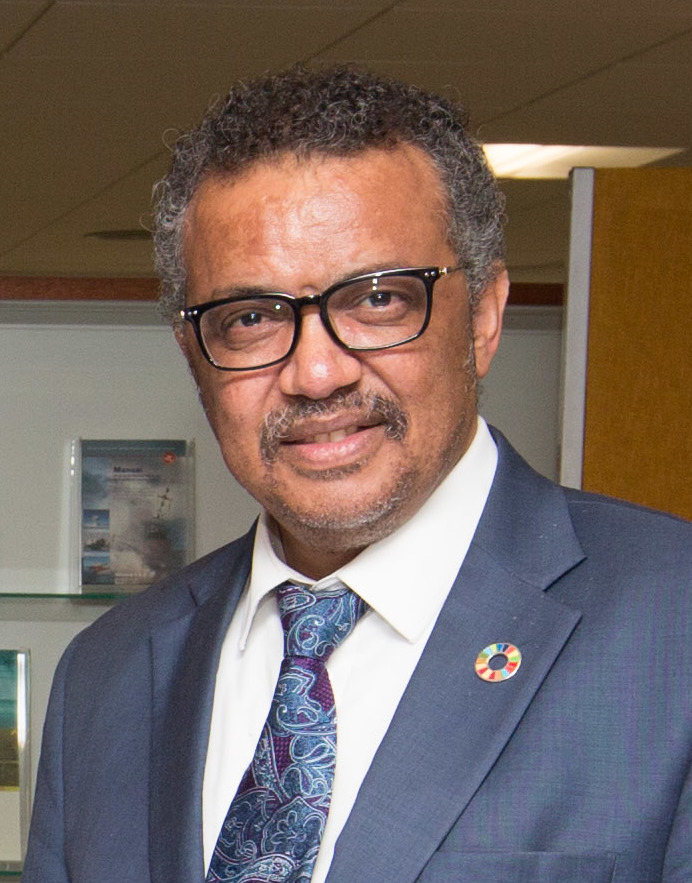
[Authenticity unverified as
delivered -- audio/video could not be located]
 Honorable Ministers, Excellencies, dear colleagues
and friends:
Honorable Ministers, Excellencies, dear colleagues
and friends:
Good morning, good afternoon and good evening to all Member States, and thank
you for joining us for this special briefing on the steps that WHO is taking to
identify the origins of SARS-CoV-2.
As you know, at the end of March this year, the WHO-led international scientific
team delivered its report following its mission to China in January, in line
with World Health Assembly resolution 73.1.
That report filled in several knowledge gaps, and identified areas for further
study.
Earlier this week, Member States received a circular letter detailing the
proposed next steps that the Secretariat will take to advance those studies, in
several areas:
First,
integrated studies of humans, wildlife, captive and farmed animals, and
environment, as part of a One Health approach.
Second,
studies prioritizing geographic areas with the earliest indication of
circulation of SARS-CoV-2, and neighboring areas where other SARS-related
coronaviruses have been found in non-human reservoirs;
Third,
studies of animal markets in and around Wuhan, including continuing studies on
animals sold at the Huanan wholesale market;
Fourth,
studies related to animal trace-back activities, with additional epidemiology
and molecular epidemiology work, including early sequences of the virus;
And,
Fifth,
audits of relevant laboratories and research institutions operating in the area
of the initial human cases identified in December 2019.
The Secretariat will continue to develop operational plans and terms of
reference for the next series of studies, in collaboration and consultation with
Member States and the international scientific community.
I thank China and the other Member States who wrote to me yesterday, and I agree
that finding the origins of this virus is a scientific exercise that must be
kept free from politics.
For that to happen, we expect China to support this next phase of the scientific
process by sharing all relevant data in a spirit of transparency. Equally, we
expect all Member States to support the scientific process by refraining from
politicizing it.
Finding where this virus came from is essential not just for understanding how
the pandemic started and preventing future outbreaks, but itís also important as
an obligation to the families of the 4 million people who have lost someone they
love, and the millions who have suffered.
But we also know that SARS-CoV-2 will not be the last new pathogen with pandemic
potential. There will be more, and we will need to understand the origins of
those pathogens too.
It is therefore our view that the world needs a more stable and predictable
framework for studying the origins of new pathogens with epidemic or pandemic
potential.
Accordingly, I am pleased to announce that the Secretariat is establishing a
permanent International Scientific Advisory Group for Origins of Novel
Pathogens, or SAGO.
SAGO will play a vital role in the next phase of studies into the origins of
SARS-CoV-2, as well as the origins of future new pathogens.
Members of this new advisory group will be selected based on their technical
expertise, taking into account geographical representation and gender balance.
We will soon be launching an open call for nominations, including from Member
States, for highly-qualified experts to join SAGO. As required, the Secretariat
will also appoint technical advisors to SAGO.
Dr Mike Ryan and Dr Maria Van Kerkhove will say more about this new approach
shortly.
As always, we are grateful for your engagement, and we look forward to your
questions, comments, input and guidance.
I thank you.


